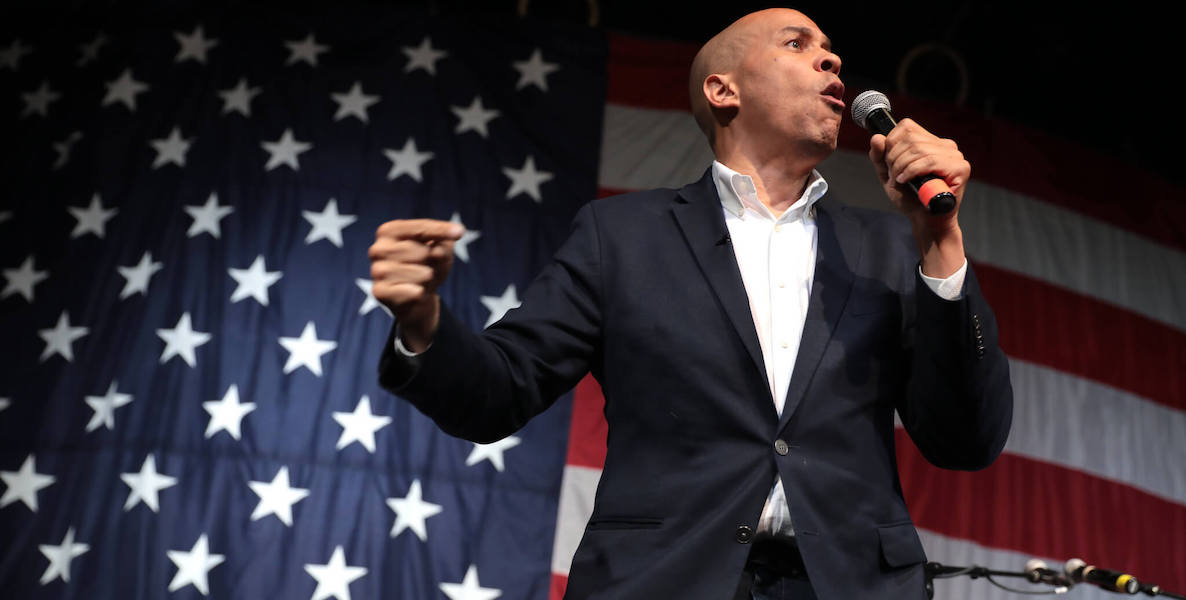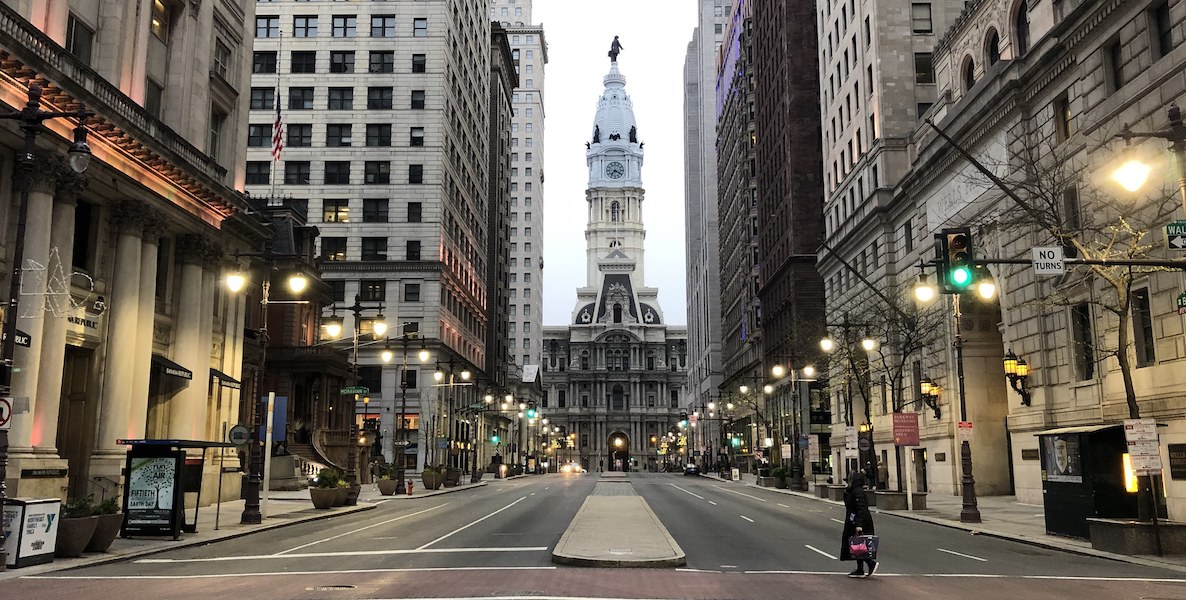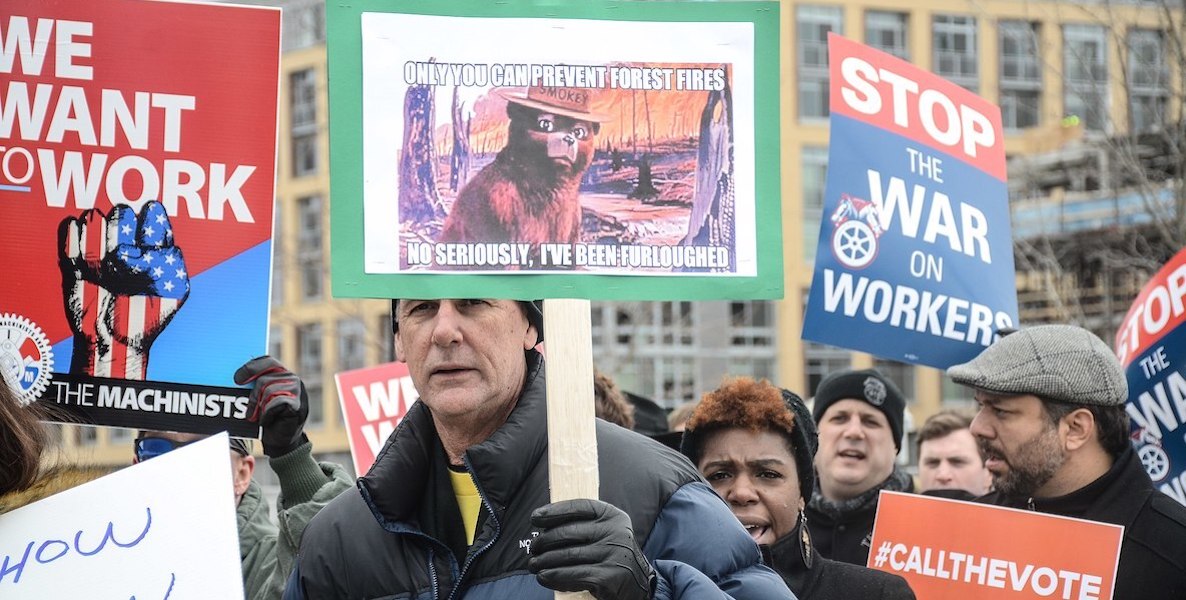Five weeks ago, we wrote about the shortcomings of the U.S. response to the Covid-19 public health and small business crises and the need for a structural response, particularly the recommitment to, and rebuilding of, our institutions at the local, inter-local, federalist, and federal levels. Given the unprecedented fiscal impact of the crisis, we see the need for a respected federalist intermediary to address the third wave of this crisis—the oncoming state and local fiscal meltdown.
The nation is in dire need of cooperation, efficiency, and effectiveness, and shared objective evidence on which to build such collaboration. The Covid-19 crisis has followed a path that, in retrospect, is as predictable as it is painful. The pandemic-driven economic shutdown has cut off hundreds of billions in tax revenues that enable city, county, and state governments to perform their basic education, security, and safety net functions, without which life in this country will become unbearable and unrecognizable.
![]() Americans are getting a crash course in the separate and intermingled tasks and functions of different levels of government—the federal government, states, counties, cities, school districts and beyond—in our embattled federal republic. They are receiving a civics lesson in how our nation operates, with a growing understanding of the fact that, despite the daily onslaught of media alerts and tweets from Washington, D.C., major powers and responsibilities vest at the state and local level.
Americans are getting a crash course in the separate and intermingled tasks and functions of different levels of government—the federal government, states, counties, cities, school districts and beyond—in our embattled federal republic. They are receiving a civics lesson in how our nation operates, with a growing understanding of the fact that, despite the daily onslaught of media alerts and tweets from Washington, D.C., major powers and responsibilities vest at the state and local level.
These powers and responsibilities are laid bare in the “federalist math.” The federal government generally accounts for only 12 percent of the total funds allocated to K-12 education, while states and localities contribute about 44 percent each. The federal share of public spending on highways and transit hovers around 25 percent; states contribute 40 percent and localities make up 36 percent.
States generally finance and deliver other pillars of national life, including public universities and community colleges which will become critical to give millions of dislocated workers and recent high school graduates the skills and credentials they need to succeed in the post-Covid world. States, counties, and cities also drive the funding for those first responders who have risked their lives during this crisis, particularly police, fire, public health, and emergency medical workers.
These are not “fancy” jobs or tasks. They, along with many other shared federalist functions, are the essential building blocks of a functioning society and a prosperous economy. Failure to maintain these essential services during the next phase of the Covid crisis and beyond will not only endanger lives but, as Jerome Powell, the Chair of the Federal Reserve, has urgently contended, prolong an already deep economic contraction. In April alone, state and local governments laid off one million people.
![]() To localize that number on an essential government service we need dearly; public schools across the nation, on average, will likely lose one in 12 teachers. In the worst-hit states, one in five may go. And, absent federal intervention, state and local governments are likely to start cutting back on investments in infrastructure projects that provide jobs that are critical to weathering a downturn.
To localize that number on an essential government service we need dearly; public schools across the nation, on average, will likely lose one in 12 teachers. In the worst-hit states, one in five may go. And, absent federal intervention, state and local governments are likely to start cutting back on investments in infrastructure projects that provide jobs that are critical to weathering a downturn.
In addition, state and local governments will need to spend more in this crisis on testing, contact tracing, and other public health matters. All the while the mechanisms for funding local and state government are in dire straits. Sales tax, which states and localities rely on in particular (as it is not collected by the federal government) is estimated to drop by 25 percent.
Other sources of tax revenues including liquor tax, airport taxes and gate fees, hotel and entertainment taxes, and stadium revenues are decreasing and/or will not be enough to keep state and local governments afloat, even those governments with robust “rainy day funds”. This will damage not only the general funds of our state and local governments, but the networks of agencies and authorities that support them.
With tax revenues plummeting, states and localities have few options given the need to balance budgets on an annual basis. Only the federal government has the fiscal capacity to act quickly and act at scale, as it has done in prior recessions.
It doesn’t take a rocket scientist to figure out the federal role during this period. With tax revenues plummeting, states and localities have few options given the need to balance budgets on an annual basis. Only the federal government has the fiscal capacity to act quickly and act at scale, as it has done in prior recessions.
Despite the blatant obviousness of the situation, the U.S. Senate has dithered in only the latest sign of the toll that partisanship and polarization has taken on national comity and action. In April, Senate Majority Leader Mitch McConnell declared his opposition to “blue state bailouts,” initially signaling that he would rather see them go bankrupt. McConnell’s 2020 version of “Drop Dead to New York” has engendered a month of selective misinformation on the fiscal health and needs of disparate states and localities.
Our fiscal federalism wasn’t always this ruinous. From 1959 to 1996, the Advisory Council on Intergovernmental Relations (ACIR) served “to strengthen the American federal system and improve the ability of federal, state, and local governments to work together cooperatively, efficiently, and effectively.” The ACIR performed a series of practical functions including: convening federal, state, and local officials and private citizens to consider common problems; investigating the consequences of changes in the federal system; providing technical assistance to the executive and legislative branches of the federal government; and recommending changes in law, regulation, and practice to achieve a more desirable allocation of functions, responsibilities and revenues, and to improve relations among the levels of government.
The ACIR’s “good government” role seems positively quaint in the current environment and, in fact, it was disbanded in 1996 as a victim of rising partisanship. What exactly did the US lose by dismantling this instruction? What would our leaders, at each level of government, have at their fingertips if a functioning ACIR still existed? More trusted and timely public health and fiscal information? Clearer options around different kinds of relief vehicles (e.g., direct appropriations versus Federal Reserve lending)? Clearer governing roles and responsibilities for addressing the consecutive waves of this crisis? It is all the above and more.
The good news is there are institutional models to learn from. In Denmark, cooperation between different levels of government is embedded in their governing system, a product of not only cultural cohesion but institutional structure. For example, KL-Local Government Denmark is a membership organization of all Danish municipalities.
Given such political and fiscal power, it (among many other functions) engages in annual negotiations with the national government concerning national program budgets and other policies that affect municipalities—not as another special interest group (like the airline or cruise industry), but as a true governing partner.
KL works together with the Danish federal government (managing salary compensation and economic relief initiatives) and Danish Regions (managing hospital and Covid-19 emergency initiatives) to form a governing institutional structure with clear roles and responsibility.
In April, Senate Majority Leader Mitch McConnell declared his opposition to “blue state bailouts,” initially signaling that he would rather see them go bankrupt. This has engendered a month of selective misinformation on the fiscal health and needs of disparate states and localities.
Questions including how to treat patients that have left the hospital after surviving the Covid-19 disease, how to conduct municipal responsibilities vis-à-vis the citizens, how to train and reassign municipal workers to other critical tasks, and how to meet increased demands for unemployment benefits have been addressed through this formalized institutional structure.
Early on during the Covid-19 crisis the national government and KL signed a joint statement mutually promising increased flexibility, rapidness, and willingness to find solutions both at a national and local level to challenges that have risen due to the Covid-19 crisis. And as the crisis continues to unfold, the national government and KL are in daily contact and KL is releasing almost daily announcements of how to tackle new national initiatives locally. This is a proper institutional response.
Back in the United States, in the absence of the ACIR, the national constituency organizations representing cities, counties and states have partially filled the information vacuum with timely and objective analysis.
The reports by the National Governors Association, the National Association of Counties, the National League of Cities and the U.S. Conference of Mayors paint a measured assessment of the complexity of fiscal federalism circa 2020 and what’s at stake in the absence of federal leadership.
The National Association of Counties’ Analysis of the Fiscal Impact of Covid-19 on County Finances, in particular, shows how the fiscal fall-out is shared by large and small counties alike, irrespective of whether they are located in “Red” or “Blue” States. This terrible crisis does not respect any partisan hue.
So where to head in this polarized environment? It is clear that the nation needs an integrated scorecard of the fiscal needs at the federal, state and local levels and an objective assessment of what’s at stake—in terms of lost or degraded services as well as broader economic repercussions—if Congress does not act to shore up the fiscal health of its federalist partners.
![]() We make a modest recommendation to further this outcome:
We make a modest recommendation to further this outcome:
We suggest that the Federal Reserve Bank convene an Emergency Federalist Fiscal Task Force.
- Each of the major national constituency organizations (the “Big 7”) would nominate two elected officials, one Democrat and Republican, to serve on the task force.
- The leadership of the U.S. House of Representatives and Senate would also nominate members, two from each chamber, with partisan parity.
- The Treasury Secretary would also serve as the Co-Chair of the Task Force, with the Chair of the Federal Reserve.
- The Task Force would report to Congress (for two consecutive years), starting in August, 2020, on a monthly basis on the fiscal conditions of states, counties, and cities and assess the implementation of each of the federal government’s policy initiatives concerning the revitalization of local economies.
We propose this includes the ongoing impacts on sales tax, property tax, and income tax, as well as changes in intergovernmental aid and local fee revenues. Alongside those base numbers, the Task Force should report the number and types of public services impacted and data on furloughs and layoffs in state and local government.
This assessment should also detail the costs and effectiveness of federal response and recovery measures, as well as provide a roadmap to all state and local governments for the implementation of all policy initiatives post Covid-19. Subsequently, the Task Force should make recommendations for further policy initiatives based on the evidence gathered.
This is a stop gap measure of course. Going forward, we need to resurrect some version of the ACIR, with concrete roles and responsibilities. The Restore the Partnership Act, legislation drafted by Jerry Connelly (D-VA) and Rob Bishop (R-UT) is a good start and deserves serious consideration.
Our current federalist architecture, or lack of one, isn’t working. In recent decades, the U.S. has preached intergovernmental cooperation while practicing every-government-for-itself. It is time to start practicing what we preach. Our failed response to Covid-19 is the fault not only of eroding the capacity of the federal government but of dismantling the fail-safe mechanisms of our federalist system. Failing to fix this structural deficiency would, simply put, be an act of national malpractice and will jeopardize our ability to not only respond to this crisis, but to govern effectively for decades to come.
Bruce Katz is the director of Drexel Metro Finance Lab, created to help cities design new institutions and mechanisms that harness public, private and civic capital for transformative investment. Luise Noring is an assistant professor at the Copenhagen Business School. Andrew Petrisin is an associate consultant at WSP.










